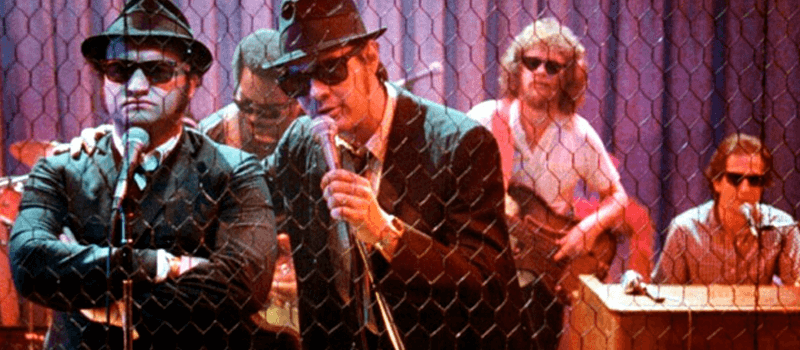You know where to play locally. You’ve been to most clubs and have made mental lists of the venues you’d like to play. Some of them are venues you want to pursue now and some you set as ones to work for when your fan base is a bit bigger. Some you’ve played and have vowed never to play again and some you can’t wait to get back in at. But what about booking a tour where you don’t know the town, have never seen the venues and don’t have people on the ground to report back?
Here are 9 things to consider when choosing a music venue either at home or when booking a tour:
1) Capacity
Every booker wants to know what your draw is. If you have no history in the area (and no online buzz) then your draw is 50. Well, that’s what you’ll say. You can get 50 people out to any show if you’re smart about promo (and team up with great local openers). Locally, once you’re experienced and have a name around town, when you book your big shows every 6-8 weeks you’ll have a pretty good idea of how many you can bring.
+50 Is The Magic Number (Book A Headlining Tour)
When you can, always book a venue with a capacity one person smaller than your draw. Meaning, if you can draw 500, book a 499 cap room. If you can draw 50, look for 49 cap rooms. It’s better to sellout a 200 cap room than play a 500 cap venue and have it two-thirds empty. Sure, it’s cool to put well-known venues on your tour calendar, but it’s better for your overall career to pack people in and give the best possible show to a full house – regardless of the size. Those who get in will be buzzing with excitement that they can experience an exclusive (to ticket holders) event and those who get turned away will know your next time through they’ll need to get tickets quickly.
2) Ages
If you’re a YouTuber with a target demographic of 12-19 you don’t want to play 21+ rooms. If you’re a bar band and need a bottle of Jack on stage with you at every show, you don’t want to book the all ages (dry) teen center. I try to book all ages or 18+ shows whenever possible. I remember what it was like before I was 21 and couldn’t get into any clubs to see my favorite bands. It sucked. I wish more clubs were 18+ or all ages all the time and left the decision up to the parents, but I get it, insurance costs, additional security on and on. The club has to take on more expenses for all age shows (and they don’t make as much money on kids – no alcohol), so most don’t like doing them. But here are some of music’s biggest fans! The money you’ll lose on the deal (to cover the venue’s extra costs) you’ll make up for on merch. Kids buy merch!
3) Reputation
I use IndieOnTheMove and Yelp when doing my venue research. IndieOnTheMove has band reviews for most venues (and full contact, capacity info). Yelp has mostly customer reviews. You can get a great sense of the venue by reading reviews. If the customers don’t like the place then you’re going to have that much harder of a time getting people out. If the bands have a horrible time there, then you’re most likely not going to have a good show. Choose a venue that’s generally liked by both the patrons and the bands.
4) Vibe
Metal bands shouldn’t play coffee shops and singer/songwriters probably don’t want to play S&M clubs. Every venue has a vibe and you have to figure out which kinds of clubs will help provide the most enjoyable experience for your fans.
5) Payment
When you’re booking directly with the club, the talent buyer (booker) will most likely offer a percentage of the door – especially if you’re unproven. If you prove yourself and can consistently bring a good crowd then your cuts will increase and potentially even move into a guarantee vs. percentage of the door deal. Aside from a few select spots in LA and NYC, nearly every deal is negotiable. Do your best to work out the best deal for yourself.
There are venues out there (typically run by musicians) that make sure their deals are fair and favorable to their guests (musicians). Some venues (typically run by dicks) try to screw the musician out of any possible money and all but turn each band member upside down at the end of the night and furiously shake down for loose change.
6) Promo
The biggest disconnect between venues and musicians is: musicians believe the venue will promote the show and the venue believes musicians will promote the show. You need to understand that most venues will NOT do anything to promote your show except display a few posters (that you provide) inside their establishment and list you on the website concert calendar. However, some venues out there take out ads in the entertainment weekly newspaper. Some venues have street teams distributing flyers for upcoming shows. Some venues exclusively work with promoters that handle this (and you’ll then have to book your show with the promoter). It’s good to know going into the show what promo the venue does and what promo you’re expected to do as the band. Word to the wise: you’re expected to do 99.99% of the promo. Asking venues what promo they do will most likely piss them off, so just do some research.
7) Advance Tickets
You always want to setup advance tickets for every show. Getting people to buy tickets in advance ensures they’re actually going to show up. Most venues have a way to setup advance tickets – if it’s not done by default. But some venues are stuck in the dark ages and, oddly do not. Check the calendar on the website to make sure that they actually sell advance tix and get them setup for your show.
8) Sound
The sound engineer is THE MOST important person for your show. Not enough bands realize this and have their music (that they worked so hard to perfect in rehearsal) botched coming out of the speakers – resulting in a horrible experience for the audience.
Best thing to do is to hire your own talented sound engineer who you trust (if you can afford this). If that’s not possible, attend shows at the local clubs and pay attention to which mixes you like and which you don’t. Take notice of who is running the board. If you really love a mix, go up to the sound engineer and tell him or her! They rarely (if ever) get compliments from the patrons. You will make their night. Introduce yourself and get their card. When you’re booking a tour this won’t, obviously, be possible to do. Read reviews, ask around and do your best to choose a club that has a reputation for good sound. When you show up, treat the engineer with respect and pray to god that they will give a shit during your set. Tipping them $20 at the start of the night definitely can’t hurt!
9) Perks
One of the perks of working with a promoter (instead of the club) is that they will typically meet riders (veggie tray, tub of beer, bottle of Jameson, don’t ask for blue M&Ms… dick). They’ll also provide parking for your bus, van, car and sometimes lodging. But you have to ask.
Venues rarely provide any of this when booking directly with bands. But some will. However, most venues will have a green room, but not all. If you need a space to clear your head, dip away from the crowd, warm up, rub ice on your nipples or whatever weird pre-show routine you do hidden from the audience, you’re going to want to make sure the club has a green room. So ask!
The venue is a direct reflection on your band. Your fans will associate your band with the venue they saw you in – for better or worse. So don’t pick the wrong one!
[facebook-comments-master]



